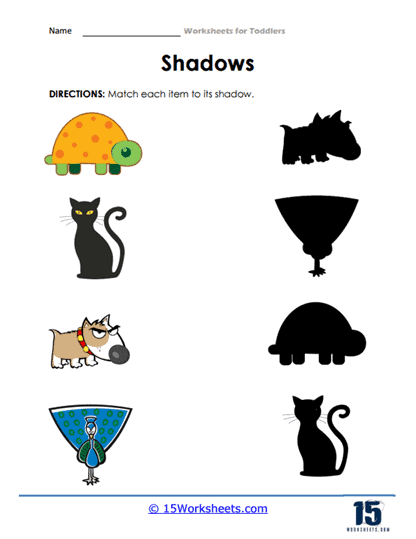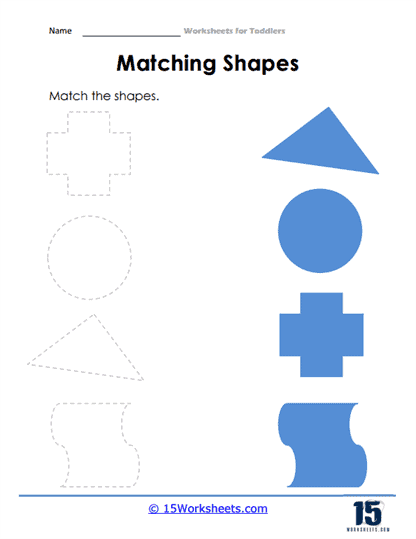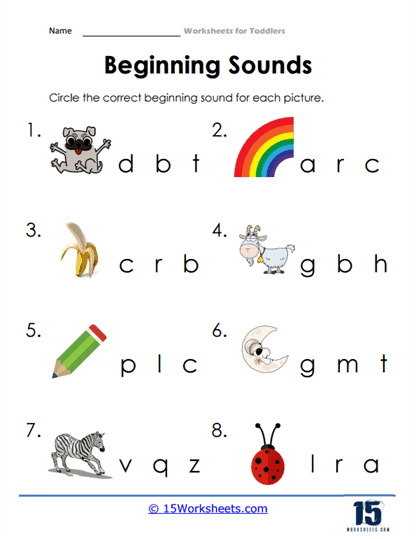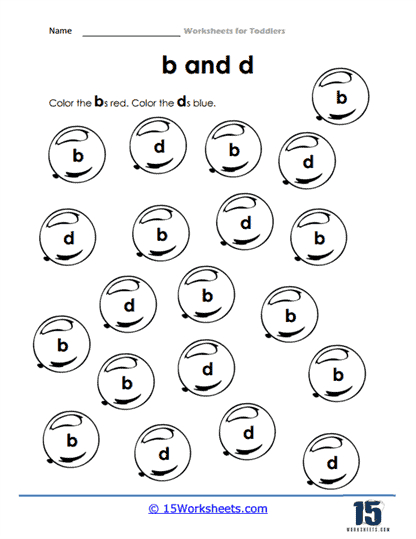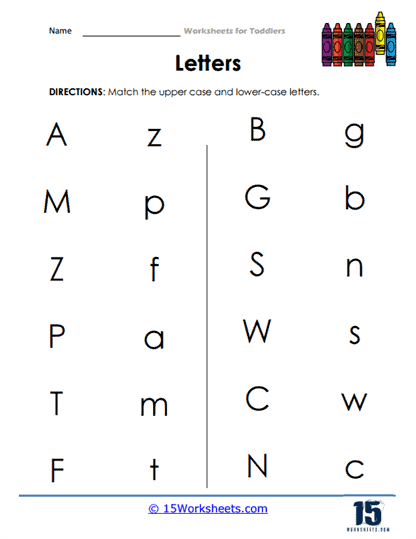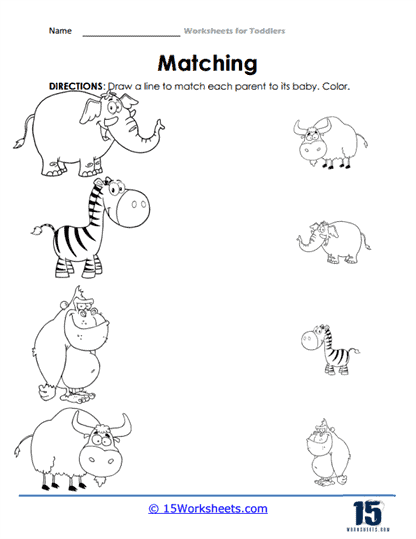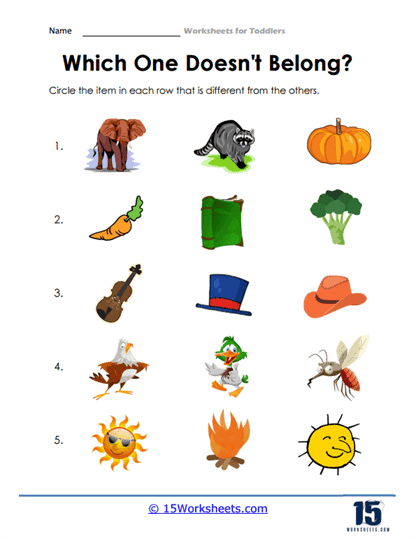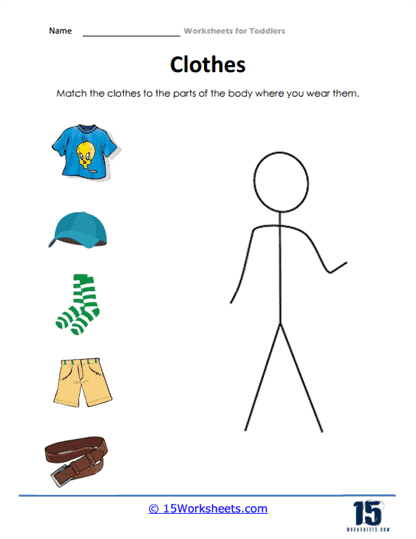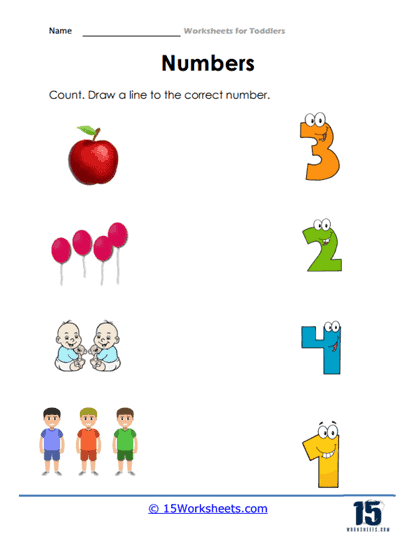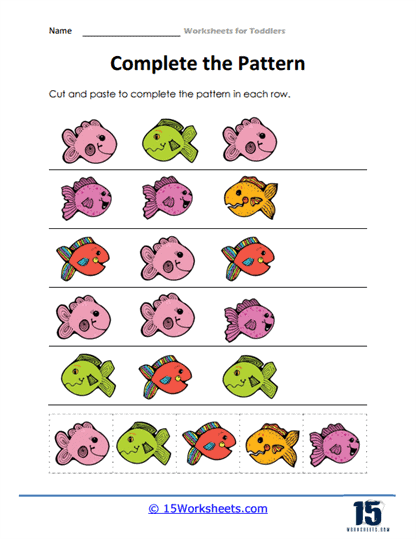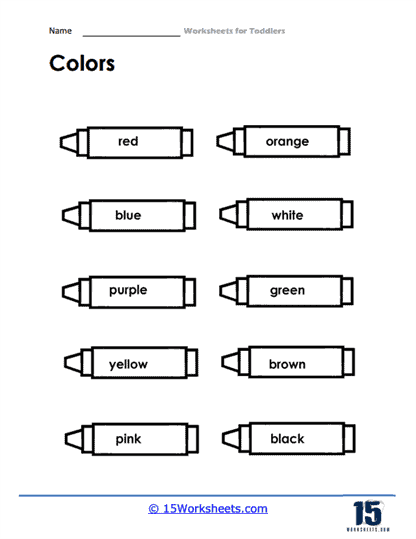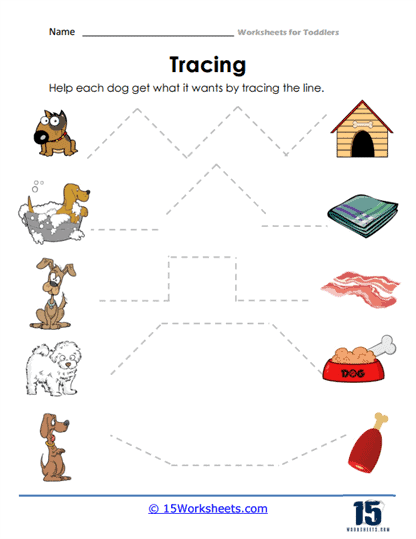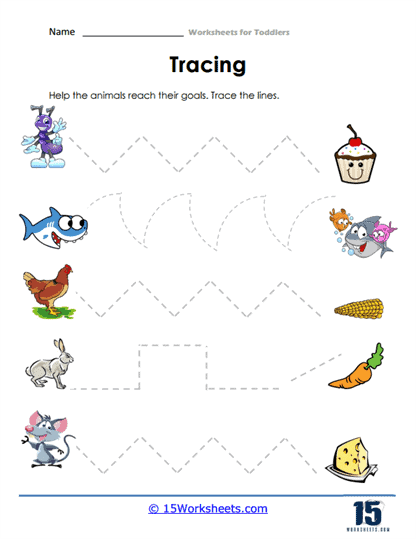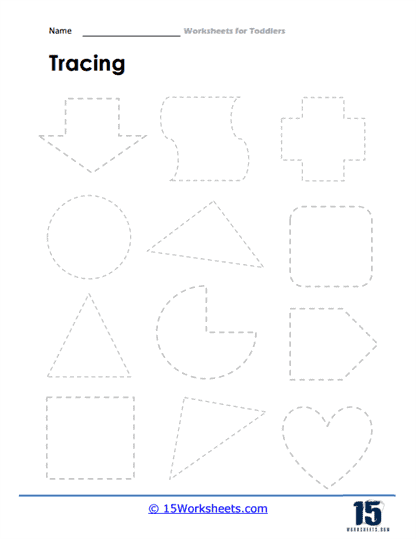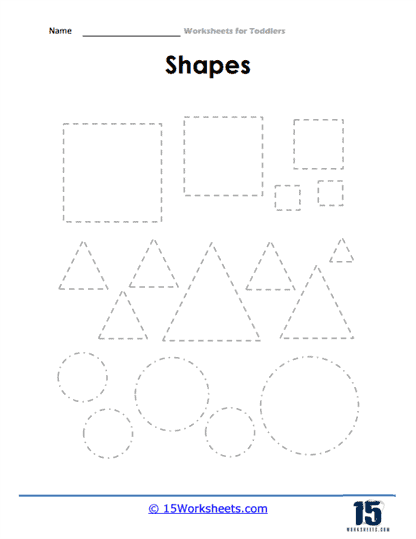Toddlers Worksheets
All About These 15 Worksheets
The toddler years are a period of rapid growth and development in a child’s life. It’s a time when children are curious, eager to learn, and absorbing information at an astonishing rate. Introducing toddlers to structured learning through age-appropriate worksheets can be a valuable tool in nurturing their early development and preparing them for future educational experiences.
This collection of Toddler Worksheets is designed to provide caregivers, parents, and educators with engaging and educational materials that cater to the unique needs and interests of toddlers. These worksheets offer an enjoyable and stimulating approach to learning that supports various aspects of early development, including cognitive, fine motor, and social skills.
What are Worksheets for Toddlers?
Worksheets for toddlers are educational resources designed specifically for young children, usually between the ages of 1 and 3 years old. These worksheets are meant to be engaging, age-appropriate, and developmentally suitable for toddlers to help them learn and practice various skills, such as fine motor skills, cognitive skills, language skills, and early math and literacy concepts.
Some common types of worksheets for toddlers include:
Coloring sheets: These help develop fine motor skills and hand-eye coordination as toddlers use crayons, markers, or colored pencils to color in simple images.
Tracing sheets: These worksheets help toddlers practice drawing lines, shapes, or letters by tracing over dotted lines or faint images.
Matching sheets: These worksheets teach toddlers to identify similarities and differences by matching pictures or objects based on their appearance, shape, or color.
Counting sheets: These worksheets help toddlers practice counting and understanding basic numbers by counting objects or pictures.
Alphabet and phonics sheets: These worksheets introduce toddlers to letters and their sounds, helping them build early literacy skills.
Sorting and categorizing sheets: These worksheets encourage toddlers to group objects or pictures based on common attributes, such as color, size, or shape.
When using worksheets for toddlers, it’s essential to ensure the activities are developmentally appropriate and to provide guidance and support as needed. Worksheets should be used as supplementary tools in addition to hands-on, play-based learning experiences, which are crucial for a toddler’s overall development.
Skills That Prepare Toddlers For School
While every child develops at their own pace, there are certain skills that can help prepare toddlers for school. Here are some important skills and milestones that are beneficial for toddlers as they transition to a school environment:
Communication Skills
- Understand and follow simple instructions.
- Use basic vocabulary to express their needs, wants, and feelings.
- Speak in simple sentences and engage in basic conversations.
Social and Emotional Skills
- Develop a sense of independence by completing simple tasks on their own.
- Share and take turns with peers.
- Begin to understand and follow basic rules and routines.
- Build relationships with other children and adults.
- Begin to manage emotions and express feelings in appropriate ways.
Fine Motor Skills
- Hold and use writing tools, such as crayons, markers, or pencils.
- Develop hand-eye coordination through activities like puzzles, stacking blocks, and manipulating small objects.
- Begin to develop scissor skills by practicing cutting with child-safe scissors.
Gross Motor Skills
- Gain balance and coordination through activities like running, jumping, and climbing.
- Participate in physical activities and games with peers.
Cognitive Skills
- Develop basic problem-solving skills through play and exploration.
- Recognize and name colors, shapes, and numbers.
- Develop an understanding of cause and effect relationships.
Early Literacy Skills
- Recognize familiar signs and logos in their environment.
- Develop an interest in books and stories, and listen to stories being read aloud.
- Begin to recognize some letters, especially those in their name.
Early Math Skills
- Understand basic concepts like counting, sorting, and comparing.
- Identify and name basic shapes.
- Understand the concept of size (e.g., big, small) and sequence (e.g., first, next, last).
Remember that every child is unique, and they will develop these skills at different rates. Encourage and support their growth through age-appropriate activities, games, and interactions. It’s also important to maintain open communication with your child’s teachers and caregivers to ensure they are prepared for the transition to school.

